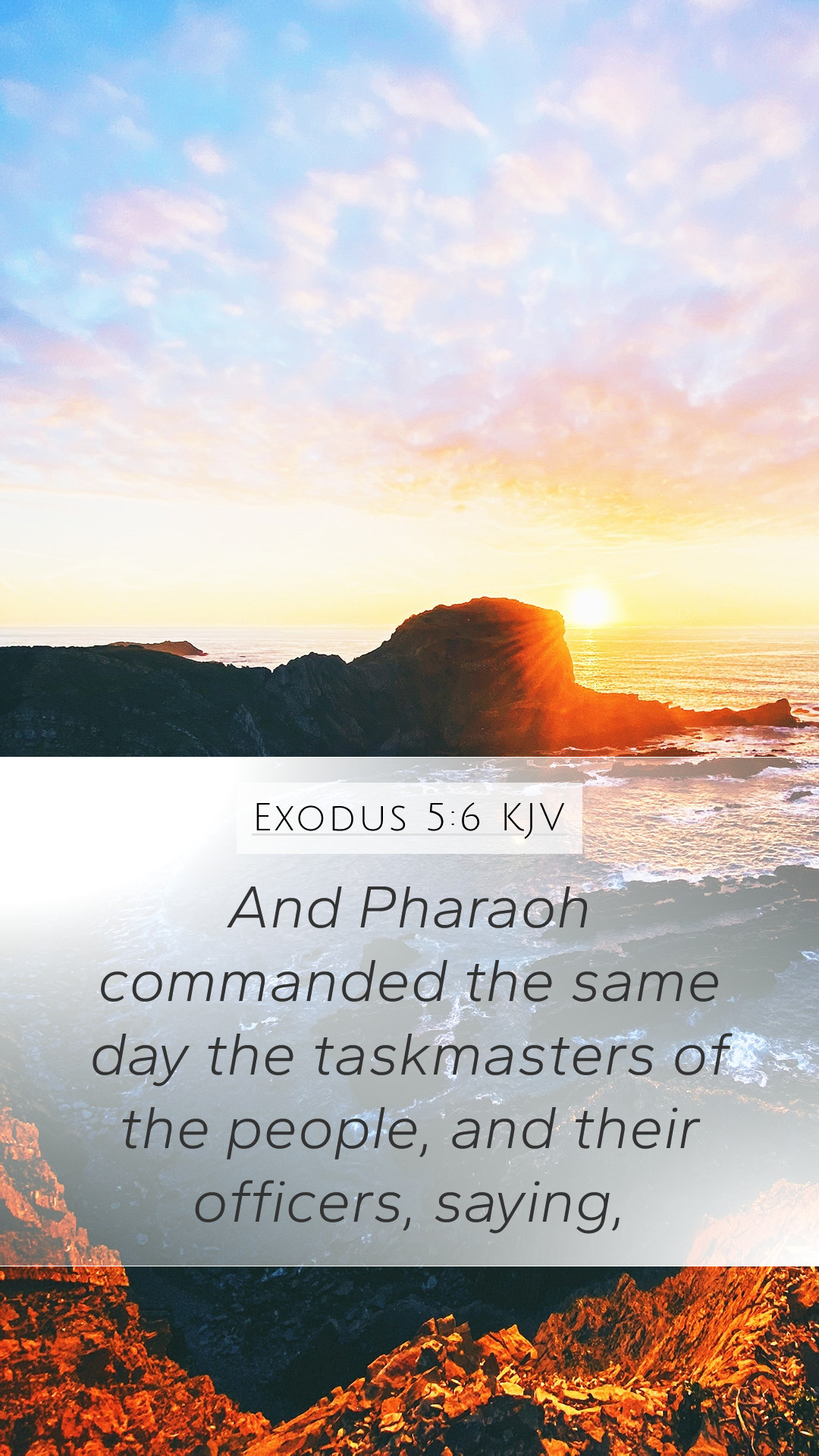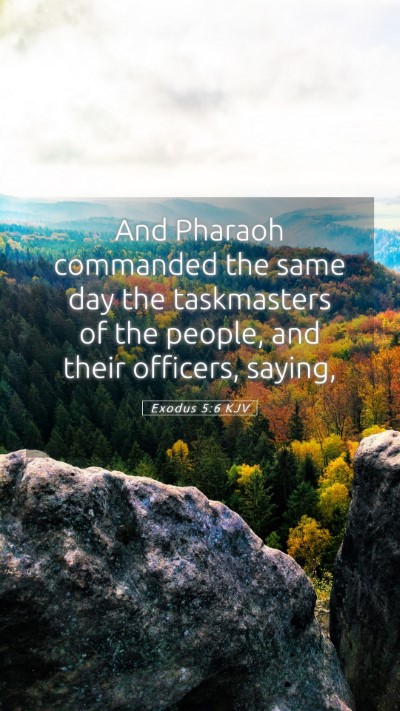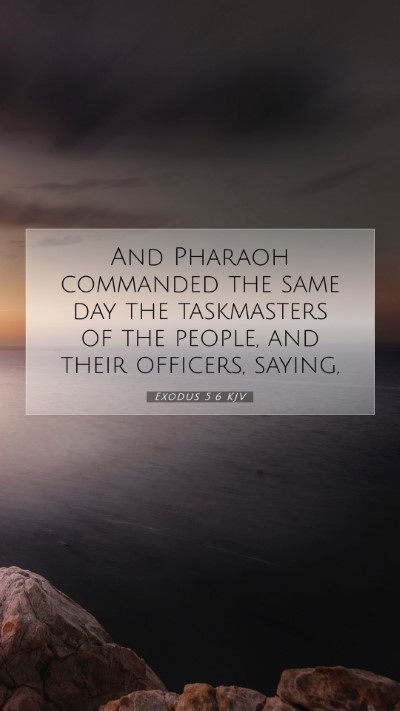Bible Verse Commentary: Exodus 5:6
Verse: "And that same day Pharaoh commanded the taskmasters of the people and their officers, saying, Ye shall no more give the people straw to make brick, as heretofore: let them go and gather straw for themselves."
This verse marks a pivotal moment in the narrative of the Exodus story. Here, Pharaoh intensifies the oppression of the Israelites in response to Moses’ request for their freedom. Below, we explore its meaning through insights drawn from various public domain commentaries.
Understanding Exodus 5:6
- Historical Context: The interaction between Moses and Pharaoh occurs in a time of significant tension and conflict. The Israelites were enslaved in Egypt and were making bricks for their oppressors. Pharaoh's harsh reaction signifies the struggle between divine liberation and human oppression.
- Literal Interpretation: Pharaoh's command to stop providing straw for bricks exemplifies his desire to maintain control and ensure that the Israelites are burdened more as a means to suppress their spirit.
- Symbolic Significance: The denial of straw can symbolize the denial of basic needs for survival and the increasing challenges faced by the oppressed.
Bible Verse Meanings and Insights
According to Matthew Henry's Commentary, Pharaoh’s decree reflects his hard-heartedness, showcasing a typical response of tyranny when faced with demands for justice and freedom. This reaction serves to illustrate the oppressor's fear of losing power and the extremes they will go to maintain that control.
Albert Barnes provides insight into the nature of the taskmasters and their possible motivations, indicating that they may have been driven by fear of Pharaoh’s wrath and their own desire to maintain authority over the Israelites. This illustrates how oppression is perpetuated by a system where fear reigns supreme.
Adam Clarke emphasizes that the imposition of more arduous tasks was both a strategic move by Pharaoh and a means of demonstrating his power. It depicts the struggle that often occurs between those who seek freedom and those who desire to maintain oppression.
Application of Exodus 5:6
The verse poses critical questions about leadership and governance. It invites readers to consider how power dynamics affect the treatment of marginalized communities and challenges modern societies to reflect on these issues. The narrative encourages a spirit of resilience inherent in those oppressed, as God eventually intervenes on behalf of the Israelites.
Life Lessons from Exodus 5:6
- Perseverance in Adversity: The Israelites’ plight serves as a reminder that, even under harsh circumstances, there is hope for liberation.
- Recognition of Oppression: Understanding the mechanisms of oppression can empower individuals to resist unjust systems.
- The Role of Faith: This passage highlights the significance of faith and divine intervention in overcoming obstacles.
Cross References
- Exodus 1:14 - Pharaoh’s oppression of the Israelites.
- Exodus 2:23-25 - God's recognition of the suffering of His people.
- Exodus 6:1 - The promise of God to deliver the Israelites.
Conclusion
Exodus 5:6 is not merely a historical account; it embodies the ongoing struggle against oppression while reaffirming the hope for liberation through faith. The teachings derived from this passage continue to resonate within contemporary discussions of justice and freedom, encouraging believers to stand firm in the face of adversity.
For those engaging in Bible study groups, this verse can serve as a profound starting point to discuss themes of oppression and deliverance, making it a relevant part of online Bible study discussions and Bible study tools.


